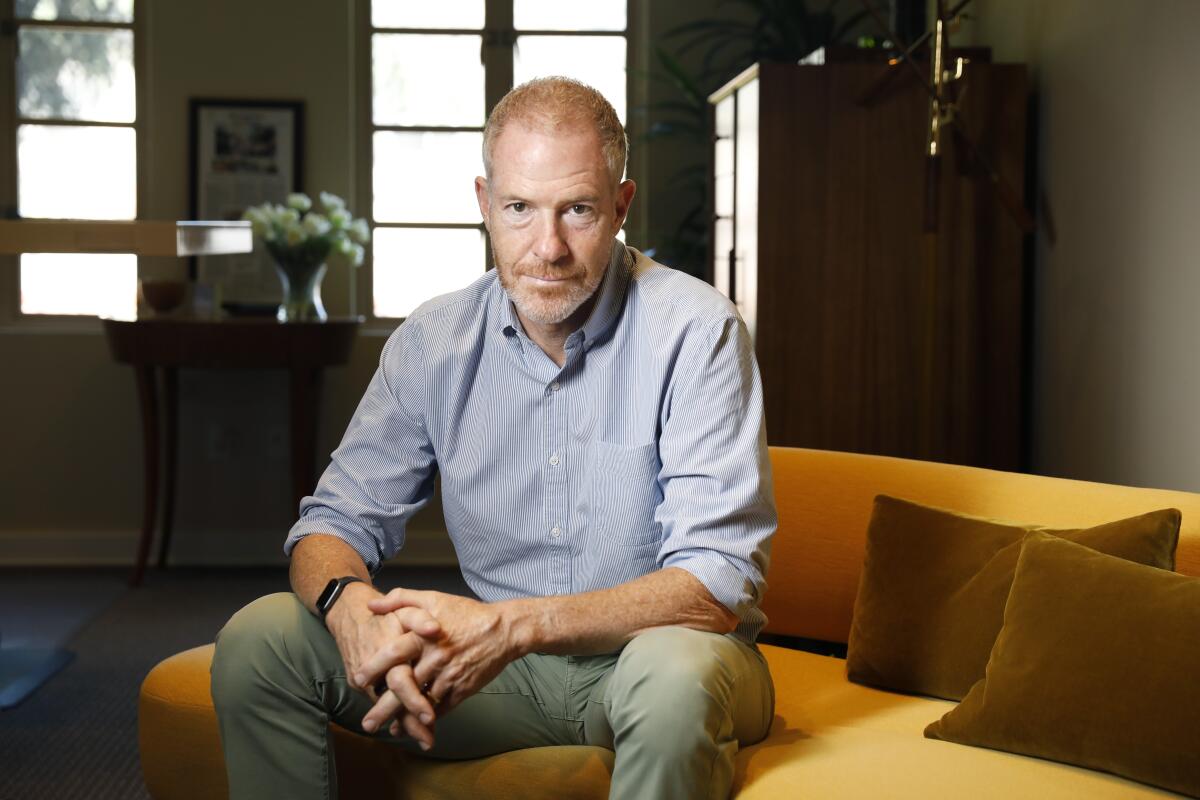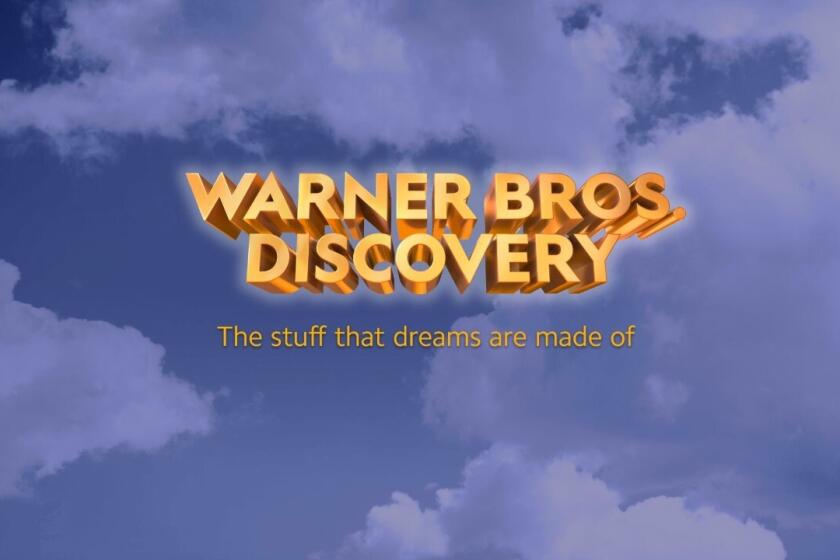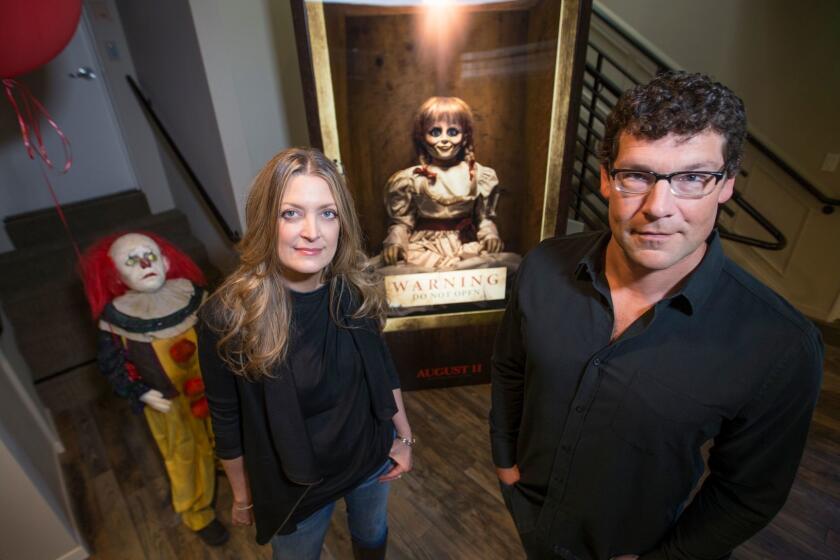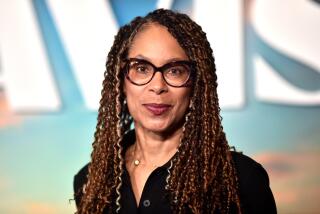Warner Bros. shakeup: Toby Emmerich to step down as film chair

Warner Bros. film chief Toby Emmerich will step down from his job running one of Hollywood’s biggest movie studios in a major shakeup following the company’s recent merger with Discovery.
The parent firm run by David Zaslav has selected longtime producers Michael De Luca and Pamela Abdy to oversee the Burbank-based Warner Bros. film division, along with the smaller New Line label, the company said Wednesday.
Emmerich, a 30-year veteran of the company who most recently served as chairman of Warner Bros. Pictures Group, will take on a production deal with the studio. He will launch his own production company focused on film, television and streaming. Warner Bros. Discovery will finance Emmerich’s firm and have distribution rights to its films and shows under a five-year deal.
De Luca and Abdy most recently helmed MGM’s movie operations but announced in April that they would leave the Beverly Hills company this summer, leading to rampant speculation over where they would land. Earlier this year, Amazon closed an $8.5-billion deal to purchase MGM, home of the “Creed” and James Bond films.
Warner Bros. boasts one of the biggest film slates in the business, which includes DC superhero movies and J.K. Rowling’s Harry Potter franchise. But De Luca and Abdy won’t be in charge of all of it.
Zaslav wants to create a structure similar to Walt Disney Co.’s movie business, with separate film divisions that have their own creative heads reporting directly to him. De Luca and Abdy will run the combined Warner Bros./New Line Cinema unit. DC films and Warner Bros. Feature Animation will have their own leaders, who have not been determined. Until those executives are identified, the units will report to De Luca and Abdy as co-chairpersons and CEOs of Warner Bros. Pictures Group.
Disney’s film empire comprises separate studios including Marvel Studios under Kevin Feige, Lucasfilm under Kathleen Kennedy and Pixar and Disney Animation, run by Pete Docter and Jennifer Lee, respectively. All report to studios chairman Alan Bergman. While the strategy has been highly successful at Disney, it remains to be seen if other companies can truly replicate it.
Emmerich and Zaslav, who are longtime friends, had been discussing the change “over the last few months,” according to a memo Zaslav sent to staff, which was obtained by The Times. When Zaslav determined that he wanted to go with the trifurcated structure, Emmerich opted to step down for the production pact, people familiar with the matter said.
“It was during these same discussions that Toby first shared with me his desire to start his own production company,” Zaslav wrote in the email. “I told him he had my absolute support.”
“This seemed like the perfect time to transition to something new and I am excited to be pursuing my passion for storytelling in a more hands-on way with my own production company,” Emmerich said in a statement.
Warner Bros.’ biggest challenges will be to keep improving the DC series and figure out what to do about the Harry Potter-adjacent “Fantastic Beasts” movies, which have suffered a steep decline. The latest installment, “Fantastic Beasts: The Secrets of Dumbledore,” grossed $396 million worldwide, a poor result for an expensive tent pole film. Warner Bros. superhero movies have largely recovered from the rocky Zack Snyder era, with hits including “Joker.”
The news was first reported by the Hollywood Reporter.
Zaslav has moved quickly to get under the hood and make changes at the combined company since the merger closed in April. The Warner Bros. Discovery merger ended the studio’s tumultuous era under the ownership of AT&T. The Dallas phone company spun off Warner Bros., HBO, CNN and other media operations to combine with Discovery in a $43-billion deal.
Warner Bros. angered Hollywood with its decision to put movies in theaters and on streaming service HBO Max simultaneously. It now faces a turning point as the studio’s parent company prepares its film strategy for the streaming age. In the background, a new owner: Discovery.
Hollywood studio chiefs move around the business like players in a game of musical chairs, with the same people rotating through the top jobs for decades.
De Luca served as president of production for Time Warner-owned New Line Cinema until he was fired in 2001 following a disastrous run of box office flops including “Little Nicky” and “13 Days.” As the young head of New Line, he was widely respected and outspoken but also was reprimanded by his bosses for misbehavior, according to a 1998 Los Angeles Times story.
His replacement: Emmerich, who previously ran New Line Music.
After leaving New Line, De Luca had roles as a producer and for a time was an executive at DreamWorks and later Sony Pictures before exiting for a production deal at Universal in 2015. As a producer, he’s known for movies including the “Fifty Shades of Grey,” “Moneyball” and “Captain Phillips.” At MGM, he and Abdy oversaw an ambitious slate with mixed commercial results that included Paul Thomas Anderson’s “Licorice Pizza” and Ridley Scott’s “House of Gucci.”
Emmerich joined the company in 1992 as a dual development and music executive. He stayed on with New Line through various periods of success and turmoil, eventually becoming president and chief content officer of Warner Bros.’s film group in 2017, replacing Greg Silverman. Emmerich was promoted to chairman the following year. His tenure at New Line included Peter Jackson’s “The Hobbit” trilogy, “Elf” and “Wedding Crashers.” While he ran Warner Bros., the studio released hits like “Aquaman” and “A Star Is Born.”
Adapting Stephen King’s “It” for the big screen would’ve been a daunting task for any studio.
Emmerich was known for his talent-friendly approach to running the studio. As a creative himself, Emmerich wrote the 2000 American science fiction drama “Frequency,” starring Dennis Quaid and Jim Caviezel, which was released by New Line.
But as head of film at Warner Bros. during the COVID-19 pandemic, Emmerich had to try to mend fences with talent after the company decided to put all of its movies on HBO Max and in theaters simultaneously, a move that infuriated directors and actors.
Now, Warner Bros. is releasing movies in theaters for 45 days before they go to streaming. The most recent DC release, Matt Reeves’ “The Batman,” grossed $770 million in worldwide box office.
Emmerich’s departure is the latest major leadership change for the entertainment company amid the combination with Discovery, known for cost-efficient reality programming such as “House Hunters” and “90 Day Fiancé.” Ann Sarnoff left her role as head of Warner Bros.’ studios and media networks in April.
The shake-up comes as Zaslav is looking for $3 billion in cost savings from the merger. Zaslav won cheers from the industry’s creative community, who believed he would be more talent-friendly than former WarnerMedia CEO Jason Kilar. But the honeymoon phase has faded amid reports that the Discovery boss is scrutinizing projects, including Warner Bros.’ $250-million production deal with J.J. Abrams’ Bad Robot.
Under AT&T, run by John Stankey, Warner Bros. suffered a turbulent era that saw the exits of multiple top executives. Warner Bros. Chairman Kevin Tsujihara left in 2018 amid a sex scandal involving an actress.
More to Read
Inside the business of entertainment
The Wide Shot brings you news, analysis and insights on everything from streaming wars to production — and what it all means for the future.
You may occasionally receive promotional content from the Los Angeles Times.













